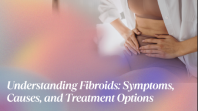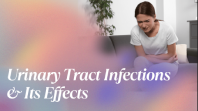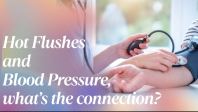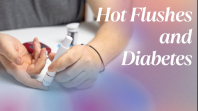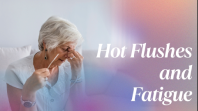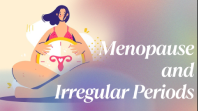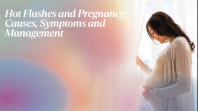Menopause: What Doctors Might Overlook About Its Hidden Benefits?
April 20, 2024

Introduction
Menopause, the natural ceasing of menstrual cycles in women, typically occurs between the ages of 45 to 55. This significant transition presents a multitude of symptoms, ranging from hot flashes and night sweats to mood changes and cognitive shifts. Despite its universality, the experience of menstrual cessation varies greatly among individuals, influenced by factors such as genetics, lifestyle, and overall health. You can know more about menopause by clicking here.
In the UK alone, there are approximately 13 million menopausal women, with a significant portion still active in the workforce. As the first point of contact for many women experiencing menopausal symptoms, General Practitioners (GPs) play a crucial role in providing support and guidance during this transitional phase.
Current Challenges in Menopause Care
Recent findings from a survey conducted among General Practitioners in the UK have shed light on concerning significant gaps in menopause care. Over half of the respondents expressed dissatisfaction with the training and support they received regarding menopausal symptoms during their medical education. Despite the prevalence of menopause-related issues, many GPs reported a lack of confidence in managing patients experiencing these symptoms.
The survey also revealed that while there are guidelines provided by organizations such as the National Institute for Health and Care Excellence (NICE), a considerable portion of GPs find them difficult to implement in practice. Additionally, the limited number of recognized menopause specialists in the UK further amplifies the challenge of accessing comprehensive menopause care. But why does this happen? What are GPs missing out on? Let’s look at that.
Insights from GPs and the Need for Improvement
Upon conducting semi-structured interviews with participating GPs, a shocking highlight emerged that illuminated the reality of insufficient training in vasomotor symptom care. Many GPs reported a complete absence of formal education on female aging during their medical training, which is the primary requirement for effectively supporting women during this transitional phase. This lack of training not only impacts the quality of care provided but also affects the confidence of GPs when discussing menopause-related issues with their patients.
But there is also an upside to this; the majority of respondents expressed a willingness to enhance their knowledge through additional resources and courses, such as those provided by the British Menopause Society (BMS) and the Royal College of General Practitioners (RCGP).
Proposed Solutions
Recognizing the urgent need for improvement, several potential solutions have been suggested. One key recommendation among them is the inclusion of mandatory training in the GP curriculum. While recent updates to the curriculum have addressed this to some extent, there remains a need for ongoing education and support to ensure GPs are adequately equipped to address menopausal issues.
Furthermore, there is a call for increased accessibility to menopause-related continuing professional development (CPD) opportunities. Making such courses mandatory or allocating CPD hours specifically for menopause education could significantly bridge the knowledge gap among GPs. By establishing a structured approach to menopause training, we can empower healthcare providers to deliver informed, compassionate care.
Conclusion
The findings of the survey underscore the critical need for enhanced training and support for GPs in managing menopausal symptoms. With a growing population of menopausal women in the UK, it is imperative that General Practitioners are equipped with the necessary skills and knowledge to provide effective care and support during this significant life transition.
Addressing the education gap in menopause care not only benefits women seeking support but also empowers GPs to fulfill their role as trusted healthcare providers. By investing in comprehensive training and ongoing professional development, we can ensure that women receive the quality care and support they deserve during this important phase of their lives. This proactive approach will ultimately lead to improved health outcomes and a better quality of life for women navigating this change of life.


